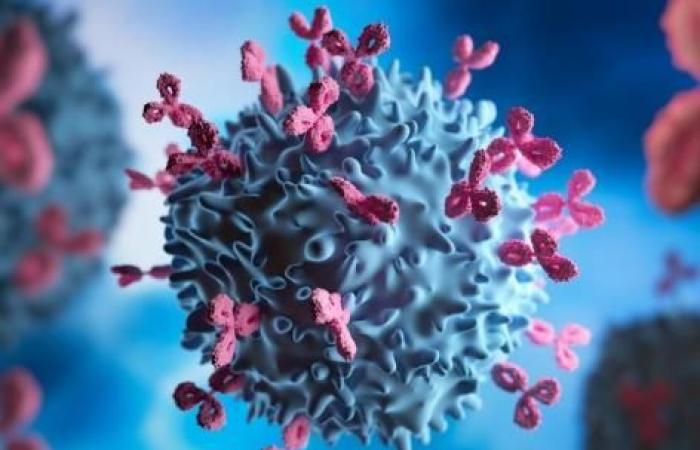THE ESSENTIAL
- Swedish researchers have developed a revolutionary antibody capable of targeting several types of cancer.
- This new precision medicine approach activates T cells of the immune system to attack tumors in a targeted manner, focusing on specific mutations in cancer cells.
- Initial results show effectiveness in human blood samples and animal models, prolonging the survival of treated mice. They could pave the way for personalized and affordable therapies.
A team of researchers from Sweden has just highlighted a potential new therapeutic approach against cancer: a multifunctional antibody, capable of targeting several types of tumors. This antibody combines three distinct functions, making it possible to reinforce the action of T cells, the “soldiers” of the immune system, against cancer cells. The results were published in the journal Nature Communications.
How this antibody targets cancer cells
For 15 years, Professors Sara Mangsbo, from Uppsala University, and Johan Rockberg, from the KTH Royal Institute of Technology, have been exploring how to manipulate antibodies to act on a key protein of the immune system, CD40. “We have demonstrated that our new antibody works as precision medicine for cancer”medicine whose objective is to offer the patient a treatment adapted to the characteristics of their tumor, they explain in a press release.
Their innovation is based on a process that allows the antibody to directly target mutations present only in cancer cells, mutations called neoantigens. Indeed, the antibody developed by the researchers manages to identify and bind to these neoantigens, attracting specific immune cells and stimulating their response. Therefore, T cells are activated and focus their action on tumors, increasing the effectiveness of the treatment.
Promising, the first tests indicate that this method is capable of activating immune cells in human blood samples. As for tests on mice, they showed that the treatment prolonged their survival, or even cured them of cancer at high doses. Compared to other treatments, this approach appears to be safer overall, according to the researchers.
Facilitating access to cutting-edge cancer treatment
While one of the major challenges of precision medicine is its high cost and complexity of production, this new antibody appears to be a possible solution. “Our medicine is easy to produce at scale, while being able to be quickly personalized for each patient”assure the researchers. The drug consists of two parts: a bispecific antibody, produced in large quantities in advance, and a personalized peptide for each type of cancer, manufactured quickly and in small quantities. A flexibility that makes this treatment potentially accessible to a greater number of patients, with a reduced time between diagnosis and the start of therapy.
Although this new method has proven its effectiveness in the laboratory, it is only at the beginning of its clinical journey. Scientists plan to scale up production to conduct extensive safety testing before beginning human clinical trials.
Check out our digital video work,
only an account creation is required to access it.






